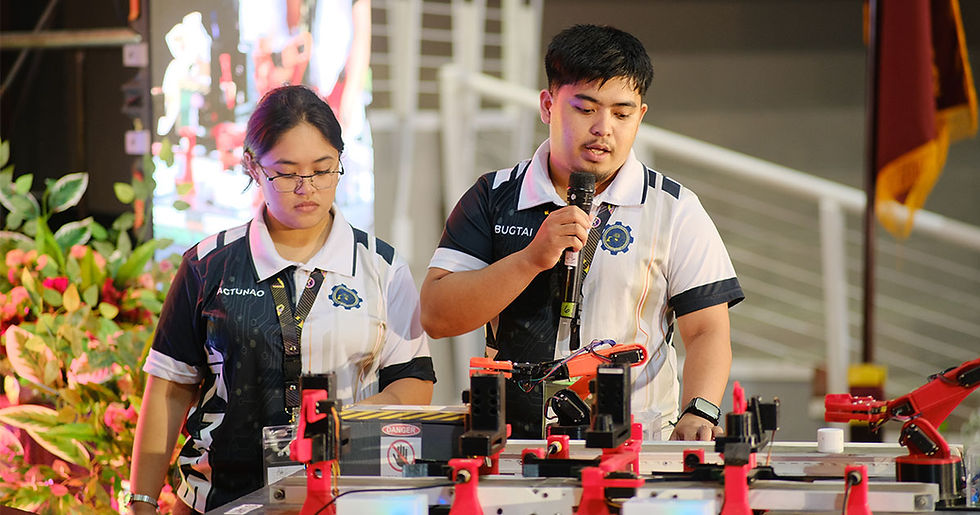From Blueprint to Impact: Pacific Mobile Makerspace
- charlesbarrete
- Sep 7, 2023
- 3 min read
Updated: Sep 10, 2023

The Mobile Makerspace was created to serve as a portable workshop with all the necessary equipment and supplies for performing repairs to damaged buildings and water and sanitation systems following a natural disaster. It contains hand tools, power tools and specialised machines such as 3D printers and a form-rolling guttering machine for repairs to rainwater harvesting systems. It has both a generator and solar power supply.
We designed it by first doing an analysis of the mobile makerspace's functionality requirements to be most effective in remote locations for disaster repairs, based on input from front line response partners like the Ministry of Health, UNICEF and the Red Cross. Using the 3D CAD software SolidWorks, our technical team then designed the space for optimal layout for the needed features.
As this Mobile Makerspace is the first of its kind in the Pacific and needs to perform in challenging island environments, our engineering team did a thorough structural and space efficiency analysis utilising Finite Element method, to ensure the most useful functionality, use of space and robustness was achieved.
The first Mobile Makerspace field deployment was to a village in Fiji with water, sanitation, and hygiene (WASH) needs as identified by the Ministry of Health. Nabila Village is situated in the district of Nadroga on Viti Levu's coral coast with 94 households and about 500 people.
Field Ready dispatched members of our technical team to Nabila, together with the district health inspector, to carry out a thorough WASH needs assessment with homeowners, the village headman, and other community leaders. They identified that some homes lacked toilets, the village's water tank was damaged, and parts of the piping systems were damaged or broken and not working properly.
Our team then procured the materials required and on August 8th the team returned with the Mobile Makerspace. Over 2 weeks they installed our locally manufactured Field Ready latrines and their shelters, produced and fitted rainwater guttering to roofs, repaired water tanks and pipe fittings, and installed handwashing stations.

This field test enabled our engineers to check the Mobile Makerspace's functionality in a real-life environment and pinpoint areas that still need improvement or adjustment. Its capacity to travel through challenging terrain like steep hills and bumpy gravel roads was also put to the test.
After the deployment, the team participated in a "lessons learned" workshop to review areas that can be improved on the Mobile Makerspace and the tools and equipment on board, as well as the procedures and documentation required for deployment. By the end of October, Field Ready intends to deploy the Mobile Makerspace to two more Fijian communities using the lessons it has learned.
The Mobile Makerspace's performance was a huge success. It was very efficient and effective for the deployed crew to utilise the Mobile Makerspace in the field, and the unit performed its primary mission very well.

As a result of the successful field mission, now a family of five with three young children no longer must go to the neighbours' facilities, because they now have their own toilet with shelter, and a rainwater collection system. Because the community tank is no longer leaking and burst pipes no longer wasting water, the village has better water security and the risk of disease spread by mosquitoes is decreased. With the installation of the Group Hand Washing Station, the community hall now has access to more water points for hand washing, reducing risk of spreading disease at gatherings. A locked sanitary pad dispenser and a liquid soap dispenser have been added to the nurses' station.
The residents of Nabila Village expressed their appreciation and gratitude to the team, and wholeheartedly agree that Field Ready’s new Mobile Makerspace is a powerful and effective way to solve and repair problems that reduce suffering aid recovery and increase resilience.

_edited.png)




Comments